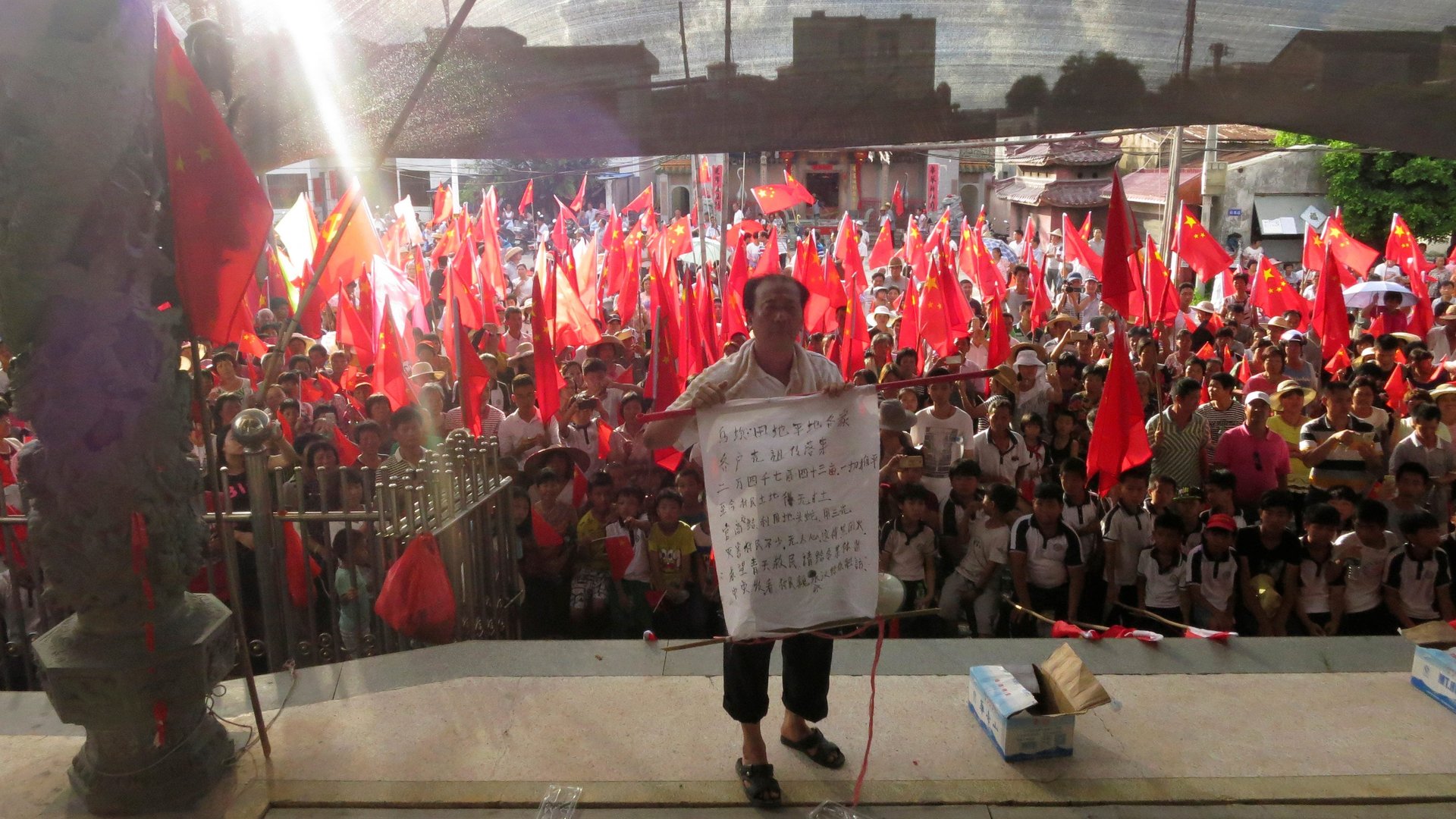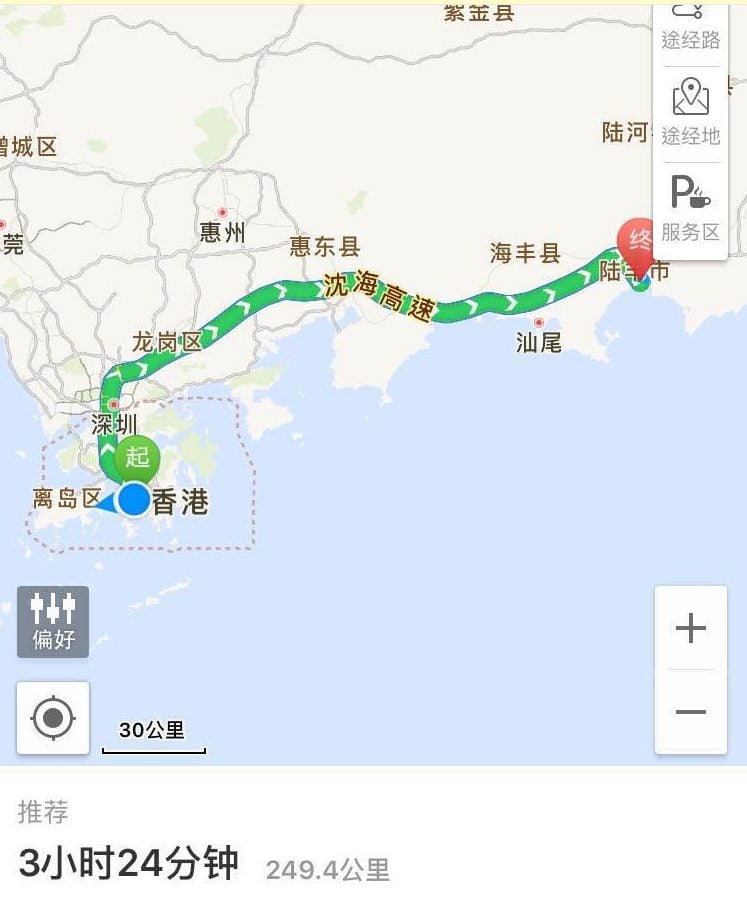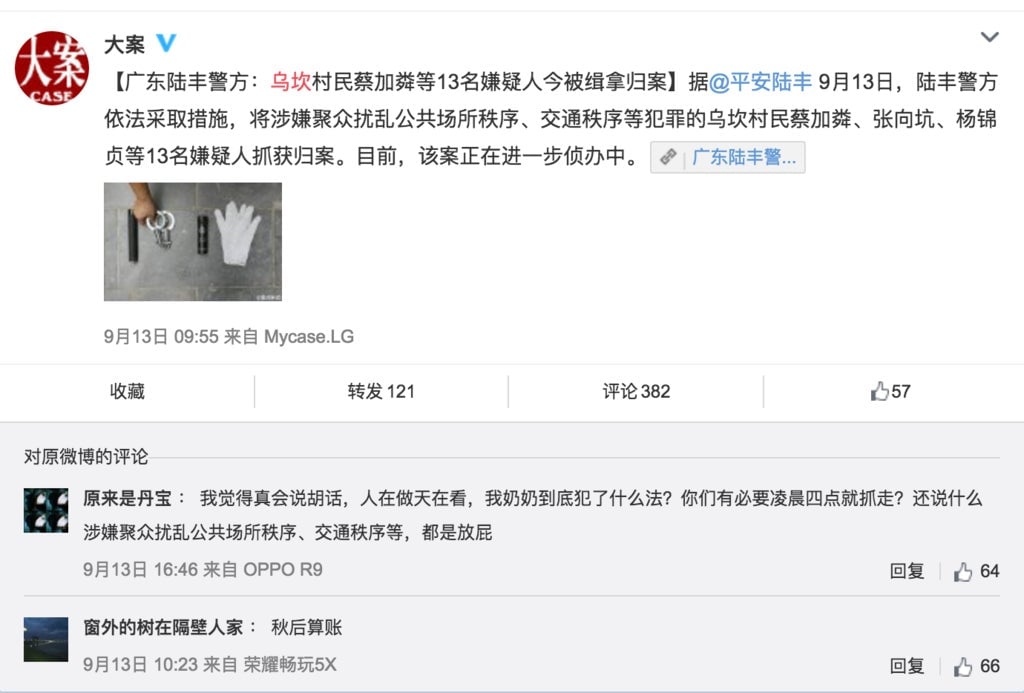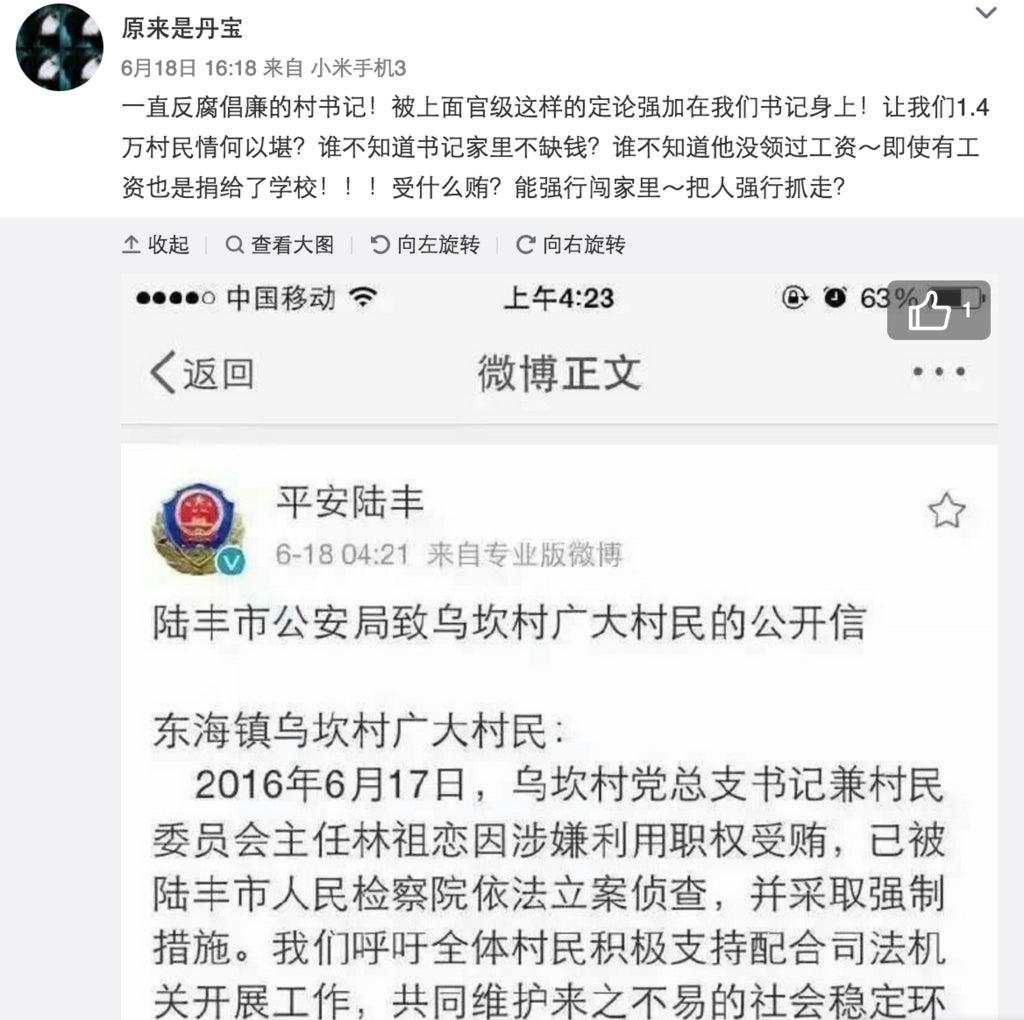Chinese censors are blocking all information about a bloody crackdown in a fishing village in Guangdong
A vicious crackdown is taking place just a few hours away from Hong Kong in a fishing village in China, but most people in the country are unlikely to know about it.


A vicious crackdown is taking place just a few hours away from Hong Kong in a fishing village in China, but most people in the country are unlikely to know about it.

Riot police moved into the village of Wukan in Guangdong province on Tuesday to quash a long-running dispute over land rights and the arrest of the village mayor on corruption charges, with bloody scenes ensuing as police deployed tear gas and rubber bullets. However, information from Wukan was on near lockdown in mainland China, except for posts on official government accounts in Weibo, a Twitter equivalent, condemning the protests.
On one such post, one commenter in Guangzhou wrote that her grandmother was taken away by police in the middle of the night. Comments on that post were later disabled:

On another, a commenter wrote that Lin Zulian, the mayor of Wukan who was arrested in June and sentenced to prison last week, could not have been corrupt, saying “Who didn’t know that he never took home a salary, and when he did he donated it to schools!!! What corruption?”:

“Videos are being shared but deleted at a very rapid rate. Land and corruption are at the top of Chinese peoples’ grievances against the government, so the government is particularly fast at removing that information,” said Maya Wang, a researcher at Human Rights Watch.
Some images showing villagers wounded and bleeding are leaking out of Wukan on Twitter, which is banned in mainland China. The images have not been verified:
Chinese authorities have warned that images circulating on social media are “doctored” and that they are investigating people who are spreading such information.
Wukan is also on physical lockdown, with the BBC being barred from entering the village and the nearby city of Lufeng:
TV coverage was also censored in China:
When unrest broke out in 2011 in Wukan over land disputes, the government ameliorated the situation by allowing the village to hold elections for the village committee. As the China Media Project (CMP) of the University of Hong Kong noted at the time, the event was reported in state news agency Xinhua in a way that made it seem like a “historic event”. The CMP also noted that the Beijing News newspaper published an editorial titled “Open and Transparent Elections Open New Chapter for Wukan.”
“What is most important here is the contrast between when Wukan first rebelled in 2011 and how the government is now handling the discontent regarding land and corruption, reflecting a harsher reality towards dissent under Xi Jinping,” Wang said. “In 2011, the case was well known…and it was treated to some level with a velvet glove. Now it’s treated with a hammer.”